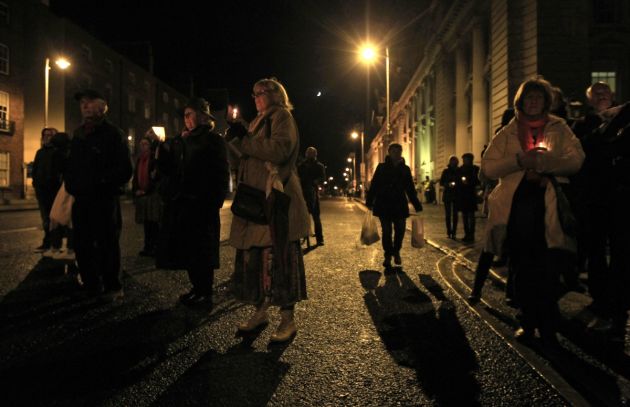Catholic relations with Irish government face abortion law test

Relations between the government of Catholic Ireland and the Vatican, already strained over sex abuse scandals within the Church, could become more frayed because of plans to relax the country's abortion laws.
Catholicism is the dominant religion of the Republic of Ireland, with 84 percent of its inhabitants identifying as being Roman Catholics.
The Catholic Church adamantly opposes abortion and Ireland has some of the most restrictive abortion laws in the world.
However, the death of a woman last year who was refused an abortion by medical personnel has ignited a firestorm.

Savita Halappanavar was 17-weeks pregnant when she entered the hospital in Galway in October.
Her husband Praveen claims that the couple requested an abortion three different times in hopes of saving her life, according to a story reported on the Christian Broadcasting Network (CBN).
CBN indicated that interest groups have been pushing through the media for an easing of restrictions in Ireland's abortion laws since Halappanavar died.
The case of the Indian national brings added pressure to Ireland because the European Union has also asked the government to clarify its abortion laws.
MEDICAL MISADVENTURE
An inquest deemed that Halappanavar died due to "medical misadventure." The official cause of death was septicemia, a severe blood infection.
Dr. Peter Boylan testified during the inquest that in his opinion Halappanavar would have been saved if the pregnancy had been terminated.
However, this view has been opposed by pro-life advocates.
Caroline Farrow wrote in the National Right to Life News that opinion is divided on whether or not an abortion could have saved Halappanavar.
In addition, in issuing a verdict of "medical misadventure,", Farrow said that the inquest "implicitly repudiated" the idea.
Farrow, a member of Catholic Voices, an apologetics organization, said that a delay in diagnosing Halappanavar caused her death.
IRISH LAW
"It is difficult to see how Irish law, let alone Catholicism, should be held to account for this delay in diagnosis," she said. "Irish law allows for an unviable pregnancy to be terminated in the event that a mother's life might be at real and substantial risk."
Farrow said that doctors had told Halappanavar that she would miscarry.
Irish Prime Minister Enda Kenny, who was elected on a pro-life stance, has been working along with Ireland's parliament to clarify the abortion law, the news site Irish Central reported.
One of the issues involved in the debate over Irish abortion law concerns a Supreme Court ruling in 1992 which is known as the "X Case".
The court ruled in the case of a 14-year old girl that abortion was legal if the woman claimed she was suicidal due to her pregnancy.
However, supporters of abortions rights have said that the ruling has been ignored.
Opponents of the ruling say that it will lead to abortion-on-demand because the claim of suicide is difficult to disprove.
Cardinal Sean Brady, the leader of the Catholic Church in Ireland, used both his Christmas and Easter messages to call on the Irish people to oppose abortion.
X CASE
His Christmas message called on people to protest against plans to legislate in favor of the X Case.
Brady urged people to "make their voice heard in a reasonable, but forthright, way."
In January 30,000 people protested in Dublin on behalf of maintaining Ireland's current restrictions on abortion.
The Vatican and the Irish government have been at odds since Kenny gave a speech last year criticizing the church's handling of clerical sex abuse.
He said that the Vatican's handling of the scandals involving the sexual abuse of children has been characterized by "elitism and narcissism." Kenny also accused the Catholic Church of covering up the matter.
The Vatican reacted to the speech by recalling its ambassador, or nuncio, to Ireland.
Still Kenny has some friends in the Catholic Church. On May 20, he will make a speech and receive an honorary degree from Boston College, a Jesuit Institution.